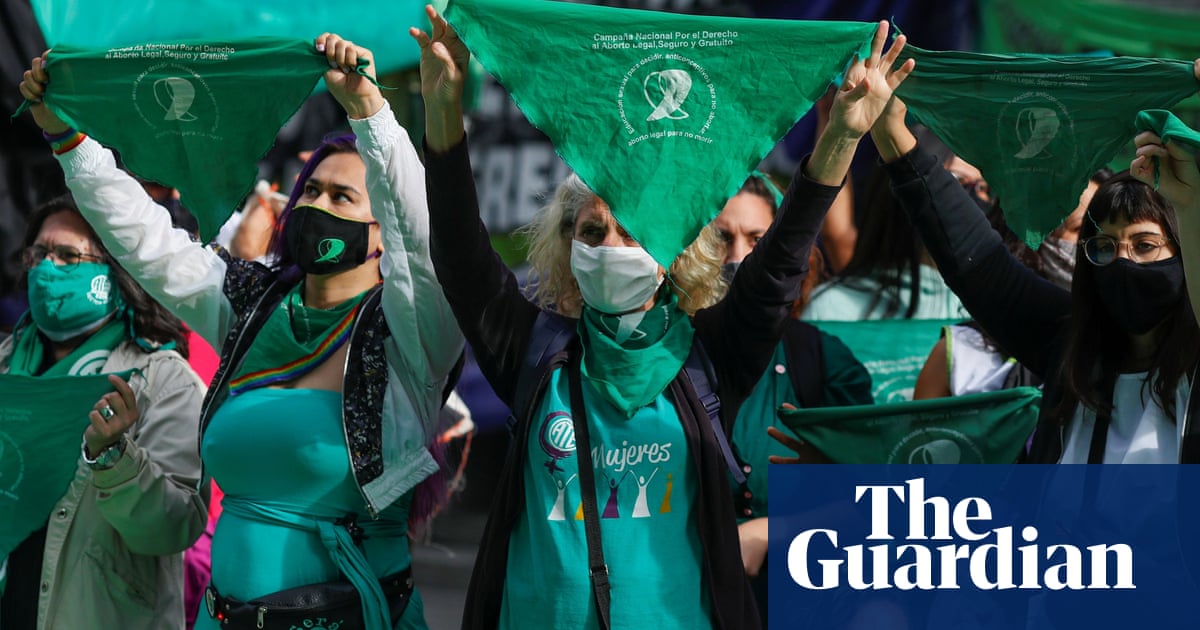Belén ended up in jail after suffering a spontaneous miscarriage. Unaware that she was pregnant, the 25-year-old went to seek medical care at a hospital in Argentina’s northern province of Tucumán when she suffered abdominal pain.In accordance with Argentina’s stringent anti-abortion legislation, Belén (not her real name) was reported by the hospital to the authorities and sentenced to eight years in prison for homicide. She did not regain her freedom until almost three years later, in 2017, after a feminist lawyer who took up her case convinced the Tucumán supreme court to overturn her conviction.“There are many Beléns inArgentinaand this madness will continue until abortion is legalized,” said Ana Correa, pro-abortion rights campaigner and author of the book Somos Belén (We Are Belén).That long-awaited moment may be about to arrive.Argentina is expected to move within one step of becoming the first major Latin American nation to legalize abortion on Thursday, when the lower house of congress votes on a legal abortion bill sponsored by President Alberto Fernández. The president holds a majority in the lower house, and a government source said the senate could vote the move into law as soon as next week.
The push for reform in Argentina is part of a pro-choice “green wave” sweeping through Latin America, symbolized by the green handkerchief that has become the campaign’s instantly recognizable flag across the entire region.“The women of Argentina now enjoy the encouragement of all Latin America, where the green handkerchief is being raised up high from north to south,” said Claudia Piñeiro, an Argentinian author who has spent years campaigning for legal abortion.
The lack of legal abortion has condemned millions of teenagers across the region to carry unwanted pregnancies to term. In Argentina alone, more than 7,000 girls ages 10 to 14 delivered babies in 2016-2018, frequently the result of rape, according to a recent report by Argentina’s Access to SafeAbortionNetwork.“The approval of this bill will stop us from being used as birthing machines and allow us to be treated as human beings with a right to decide over our own bodies and destiny,” said Gabriela Cabezón Cámara, a prominent Argentinian intellectual and author.Undergoing a termination remains punishable by law across Latin America, where the strong influence of the Catholic church has helped keep abortion illegal across most nations. As in Belén’s case, many women end up in prison for seeking medical assistance after a spontaneous miscarriage.Abortion is completely prohibited in El Salvador, the Dominican Republic, Nicaragua and Honduras, while exceptions are made in cases of rape or to save the woman’s life in other nations such as Brazil or Chile.In Latin America, abortion is legal only in Cuba and Uruguay, both small countries where the Catholic church has less influence. Elective abortion is also legal in some jurisdictions of Mexico, as well as in the South American nation of Guyana and the French overseas department of French Guiana.A change in the law in Argentina, the home country of Pope Francis, would send a loud signal across a region where demand for legal abortion continues to grow.The toll on Argentinian women is harrowing. Nearly 40,000 women were admitted to public hospitals for complications arising from illegal abortions in 2016 alone, according to a new report. Of these admissions, 6,400 corresponded to girls and teenagers ages 10 to 19.At least 65 women died after undergoing backstreet interventions in the 2016-18 three-year period, about half of them in their 20s and nine of them just teenagers.At least 73 women, as well as doctors and nurses, have gone to prison or been held under temporary arrest on illegal abortion charges in Argentina since 2012, say campaigners for abortion rights.
Two years ago, a previous attempt to legalize abortion wasrejected by the senateafter a marathon 15-hour debate despite opinion polls which showed strong public support for the move.
The Catholic church lobbied strongly against the legislation, and the 2018 bill did not count on the support of the then – president, Mauricio Macri.
But the setback gave new impetus to Argentina’s feminist campaigners, and with the coronavirus pandemic eating away at support for his administration, President Fernández is eager tofulfill a 2019 electoral pledgeto legalize abortion.
